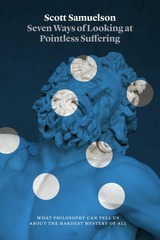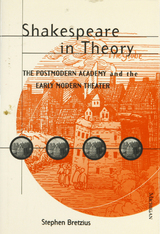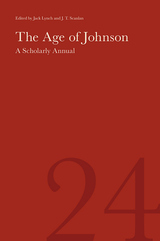
The move to a new publisher has given The Age of Johnson: A Scholarly Annual the opportunity to recommit to what it does best: present to a wide readership cant-free scholarly articles and essays and searching book reviews, all featuring a wide variety of approaches, written by both seasoned scholars and relative newcomers. Volume 24 features commentary on a range of Johnsonian topics: his reaction to Milton, his relation to the Allen family, his notes in his edition of Shakespeare, his use of Oliver Goldsmith in his Dictionary, and his always fascinating Nachleben. The volume also includes articles on topics of strong interest to Johnson: penal reform, Charlotte Lennox's professional literary career, and the "conjectural history" of Homer in the eighteenth century.
For more than two decades, The Age of Johnson has presented a vast corpus of Johnsonian studies "in the broadest sense," as founding editor Paul J. Korshin put it in the preface to Volume 1, and it has retained the interest of a wide readership. In thousands of pages of articles, review essays, and reviews, The Age of Johnson has made a permanent contribution to our understanding of the eighteenth century, and particularly of Samuel Johnson, his circle, and his interests, and has also served as an outlet for writers who are not academics but have something important to say about the eighteenth century.
ISSN 0884-5816.

Published by Bucknell University Press. Distributed worldwide by Rutgers University Press.
ISSN 0884-5816

Fought as fiercely by politicians and the public as by troops in Southeast Asia, the Vietnam War--its origins, its conduct, its consequences--is still being contested. In what will become the classic account, based on newly opened archival sources, David Kaiser rewrites what we know about this conflict. Reviving and expanding a venerable tradition of political, diplomatic, and military history, he shows not only why we entered the war, but also why our efforts were doomed to fail.
American Tragedy is the first book to draw on complete official documentation to tell the full story of how we became involved in Vietnam--and the story it tells decisively challenges widely held assumptions about the roles of Eisenhower, Kennedy, and Johnson. Using an enormous range of source materials from these administrations, Kaiser shows how the policies that led to the war were developed during Eisenhower's tenure and nearly implemented in the closing days of his administration in response to a crisis in Laos; how Kennedy immediately reversed course on Laos and refused for three years to follow recommendations for military action in Southeast Asia; and how Eisenhower's policies reemerged in the military intervention mounted by the Johnson administration. As he places these findings in the context of the Cold War and broader American objectives, Kaiser offers the best analysis to date of the actual beginnings of the war in Vietnam, the impact of the American advisory mission from 1962 through 1965, and the initial strategy of General Westmoreland.
A deft re-creation of the deliberations, actions, and deceptions that brought two decades of post-World War II confidence to an ignominious end, American Tragedy offers unparalleled insight into the Vietnam War at home and abroad--and into American foreign policy in the 1960s.
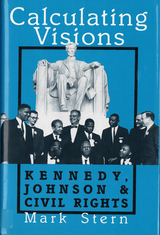

Published in the bicentennial year of Samuel Johnson’s death, Johnson and His Age includes contributions by some of the nation’s most eminent scholars of eighteenth-century literature. A section on Johnson’s life and thought presents fresh analyses of Johnson’s friendships with Mrs. Thrale and George Steevens, new information on Johnson’s relations with Smollett and Thomas Hollis, a speculative essay on “Johnson and the Meaning of Life,” and a provocative examination of “Johnson, Traveling Companion, in Fancy and Fact.”
Other essays reinterpret basic assumptions in Johnson’s criticism and examine “The Antinomy of Style” in Augustan poetics, Hume’s critique of criticism, and the broad Anglo-Scots inquiry on subjectivity in literature. A section on major figures of the age discusses Gray and the problems of literary transmissions, Hogarth’s book illustrations for friends, Gibbon’s oratorical “silences,” Blake’s concept of God, and Burke’s attempt to forestall Britain’s ruinous policy toward the American colonies. A section on the novel examines that genre from Richardson and Sterne to Austen.
Among the contributors are Bertrand H. Bronson, Jean H. Hagstrum, Patricia Meyer Spacks, Robert Haisband, Howard D. Weinbrot, Mary Hyde, Ralph W. Rader, Lawrence Lipking, Gwin J. Kolb, John H. Middendorf, W. B. Carruichan, and Max Byrd.

Published by Bucknell University Press. Distributed worldwide by Rutgers University Press.

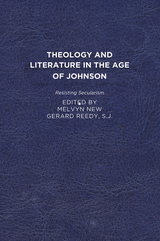
Published by University of Delaware Press. Distributed worldwide by Rutgers University Press.

Unaffordable covers, in a conversational style punctuated by apt examples, topics ranging from health insurance, pharmaceutical pricing, and physician training to health maintenance organizations and hospital networks. Along the way, Engel introduces approaches that other nations have taken in organizing and paying for healthcare and offers insights on ethical quandaries around end-of-life decisions, neonatal care, life-sustaining treatments, and the limits of our ability to define death. While describing the political origins of many of the federal and state laws that govern our healthcare system today, he never loses sight of the impact that healthcare delivery has on our wallets and on the balance sheets of hospitals, doctors' offices, government agencies, and private companies.
READERS
Browse our collection.
PUBLISHERS
See BiblioVault's publisher services.
STUDENT SERVICES
Files for college accessibility offices.
UChicago Accessibility Resources
home | accessibility | search | about | contact us
BiblioVault ® 2001 - 2025
The University of Chicago Press


